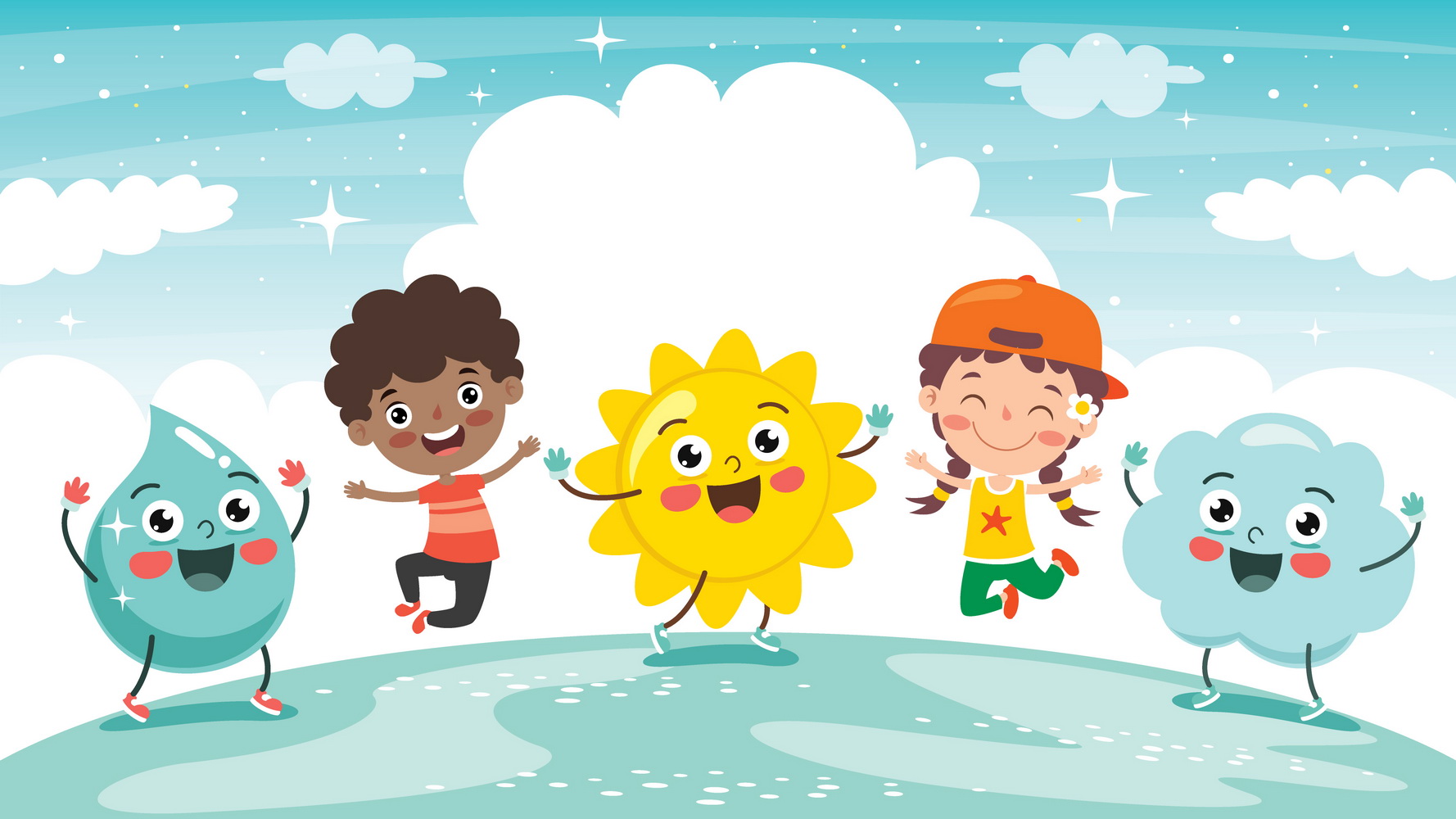Addition & Subtraction Worksheets Activities With Answers for 4-Year-Olds
8 filtered results
-
From - To
Welcome to our engaging Addition & Subtraction Worksheets Activities for 4-Year-Olds! Designed to help young learners develop foundational math skills, these fun worksheets provide colorful and interactive exercises that make mastering addition and subtraction enjoyable. Each activity is tailored to the cognitive abilities of preschoolers, featuring vibrant images and relatable scenarios. With easy-to-follow instructions and step-by-step answers, parents and educators can effortlessly guide children through the learning process. Explore the joy of numbers while building confidence in early math skills. Perfect for classroom settings or at-home learning, our worksheets ensure a comprehensive and enriching experience for every little mathematician!
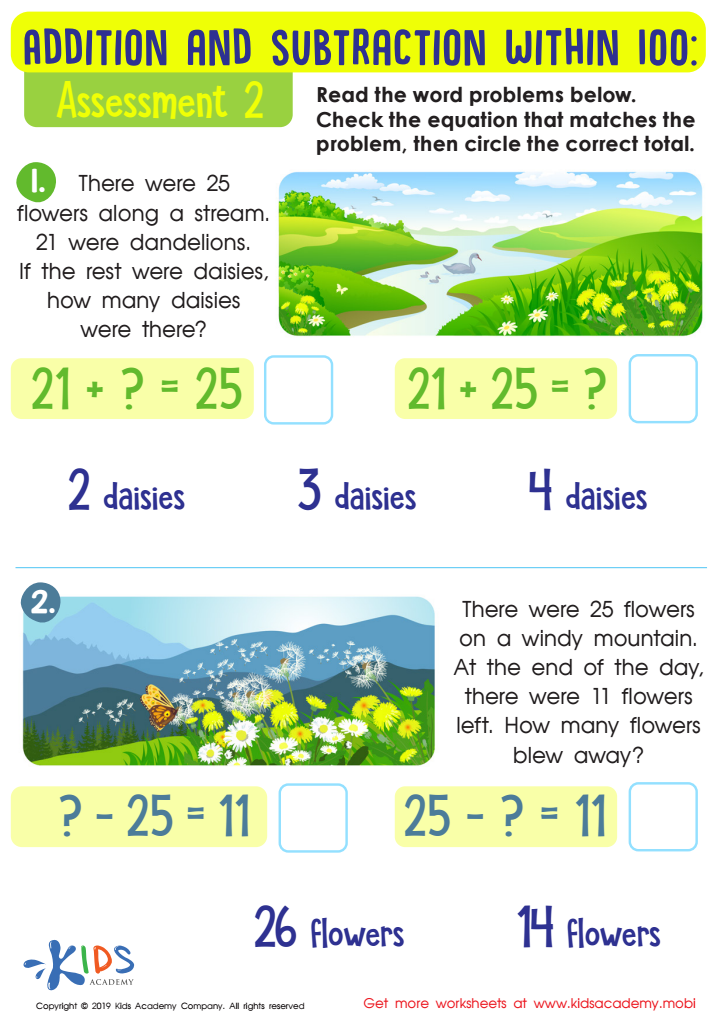

Assessment 2 Math Worksheet
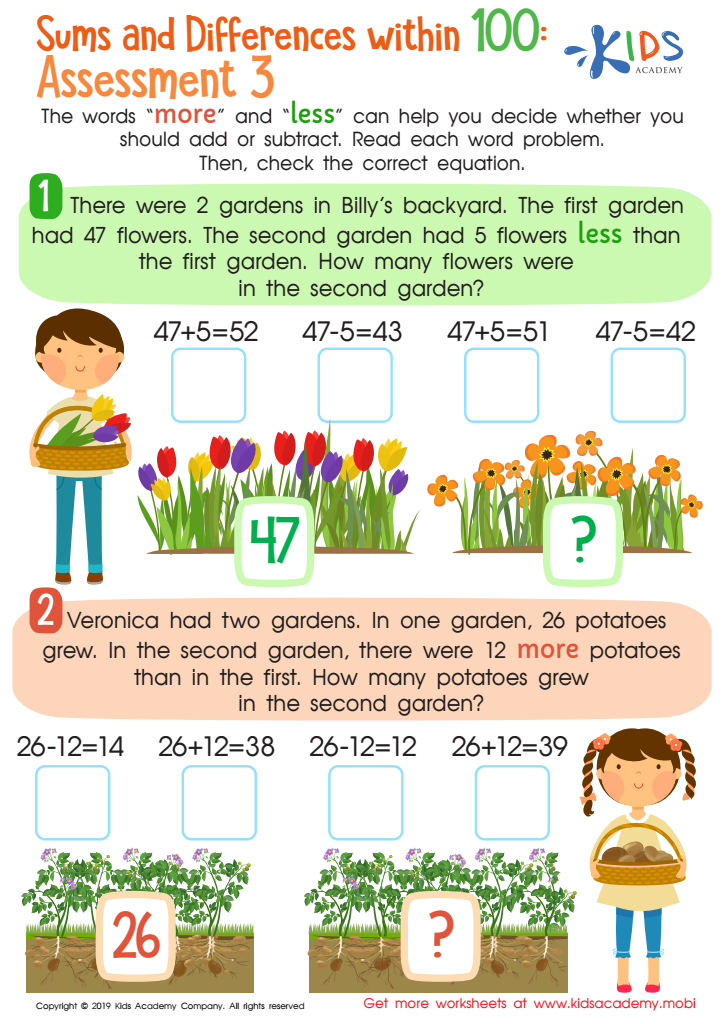

Sums and Differences Within 1 - Assessment 1 Worksheet
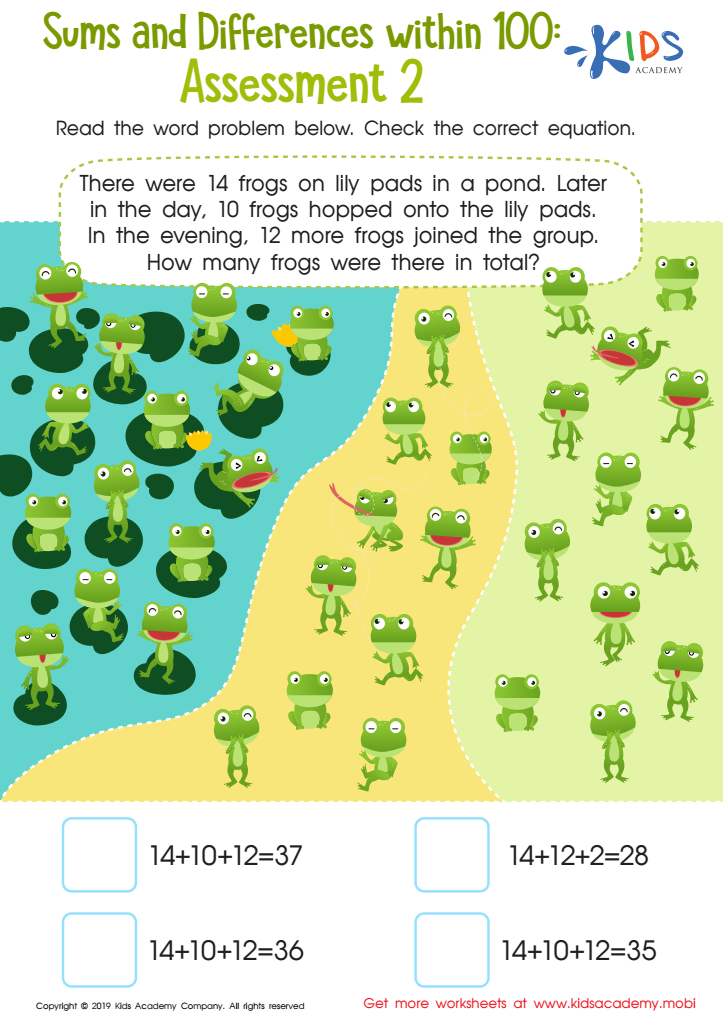

Sums and Differences Within 1 - Assessment 2 Worksheet
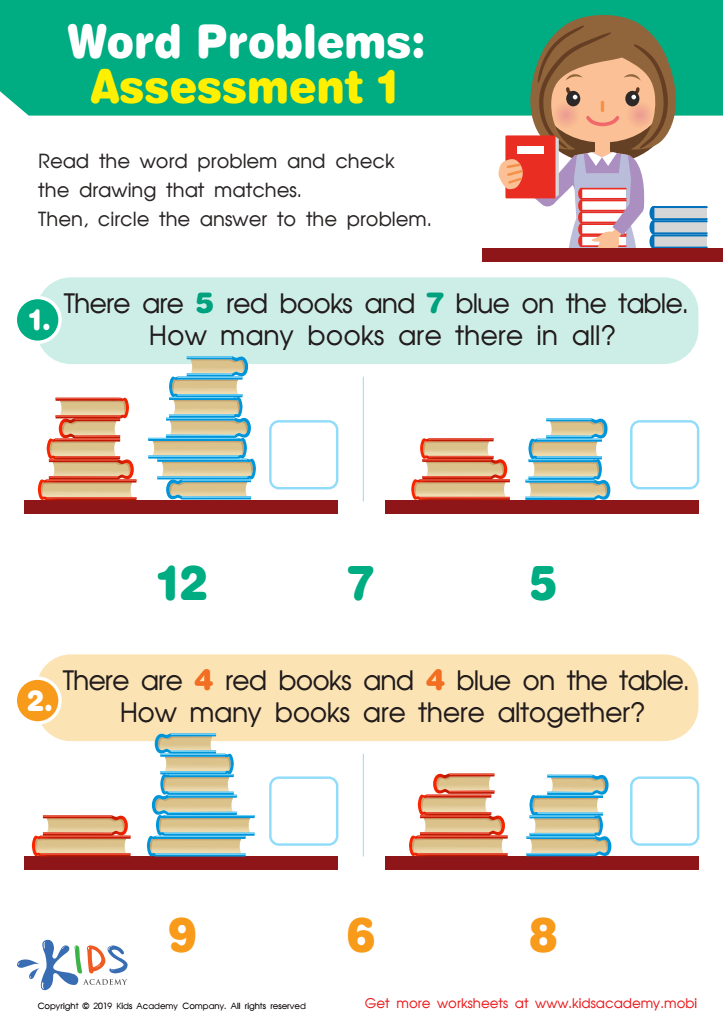

Word Problems: Assessment 1 Worksheet
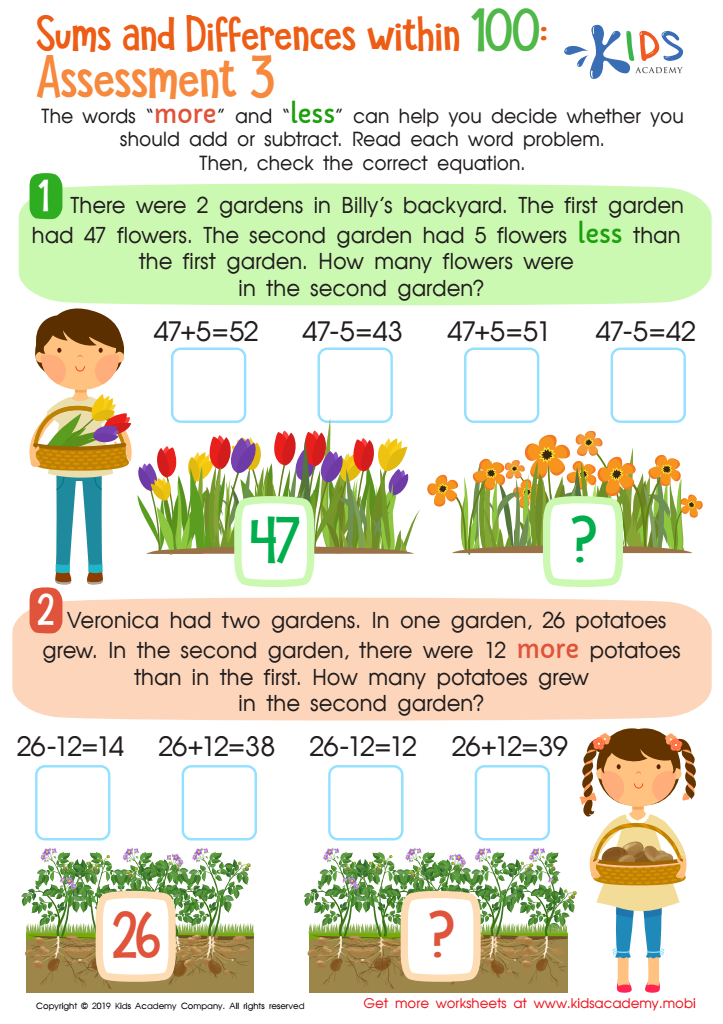

Sums and Differences Within 1 - Assessment 3 Worksheet
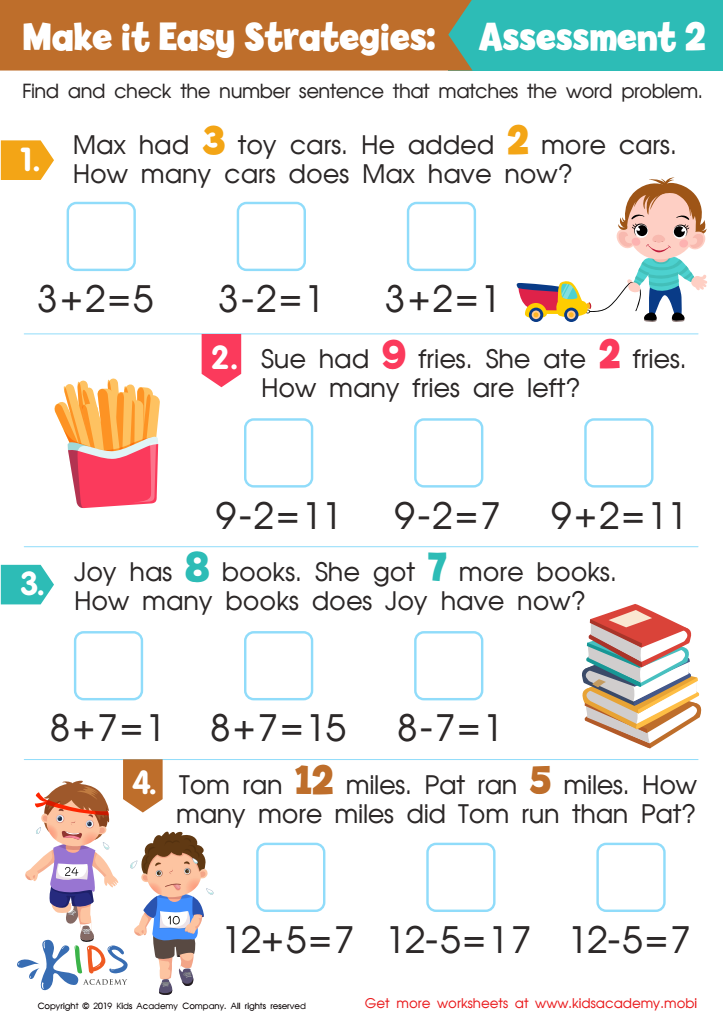

Make it Easy Strategies: Assessment 2 Worksheet


Word Problems: Assessment 2 Worksheet
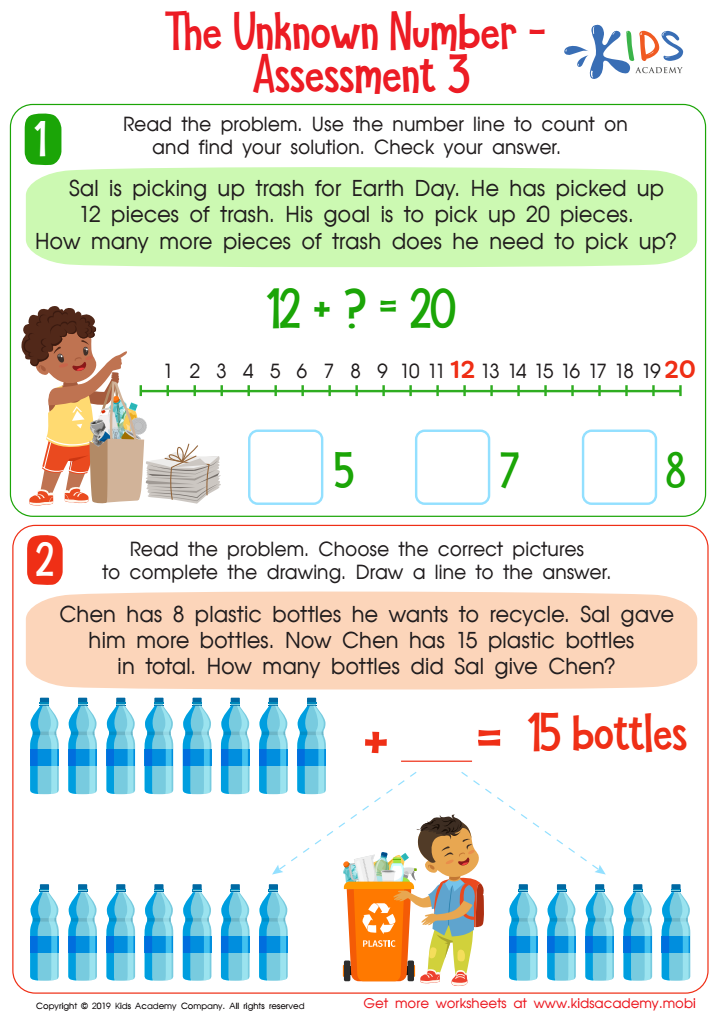

The Unknown Number - Assessment 3 Worksheet
Parents and teachers play a crucial role in laying the foundation for mathematical concepts in young children. Addition and subtraction activities for 4-year-olds are essential because they foster early numeracy skills, which are pivotal for future academic success. Engaging in these activities not only makes learning fun but also helps children understand the basic principles of combining and separating quantities—concepts they encounter in everyday life.
When children participate in hands-on activities that include visual aids, such as counters or pictures, they can grasp abstract math concepts much more effectively. Furthermore, early exposure to these foundational skills can increase a child’s confidence, making them more likely to engage with challenging material as they grow older.
Providing clear answers and solutions during these activities gives parents and teachers the opportunity to review and reinforce the concepts being learned. This not only supports a child’s understanding but also promotes a healthy dialogue about problem-solving strategies, enhancing critical thinking skills.
Ultimately, addition and subtraction activities form a playful yet structured environment where learning is encouraged, paving the way for a positive attitude towards mathematics. By prioritizing these activities, adults can ensure that children develop crucial skills that will benefit them throughout their educational journey.
 Assign to My Students
Assign to My Students




